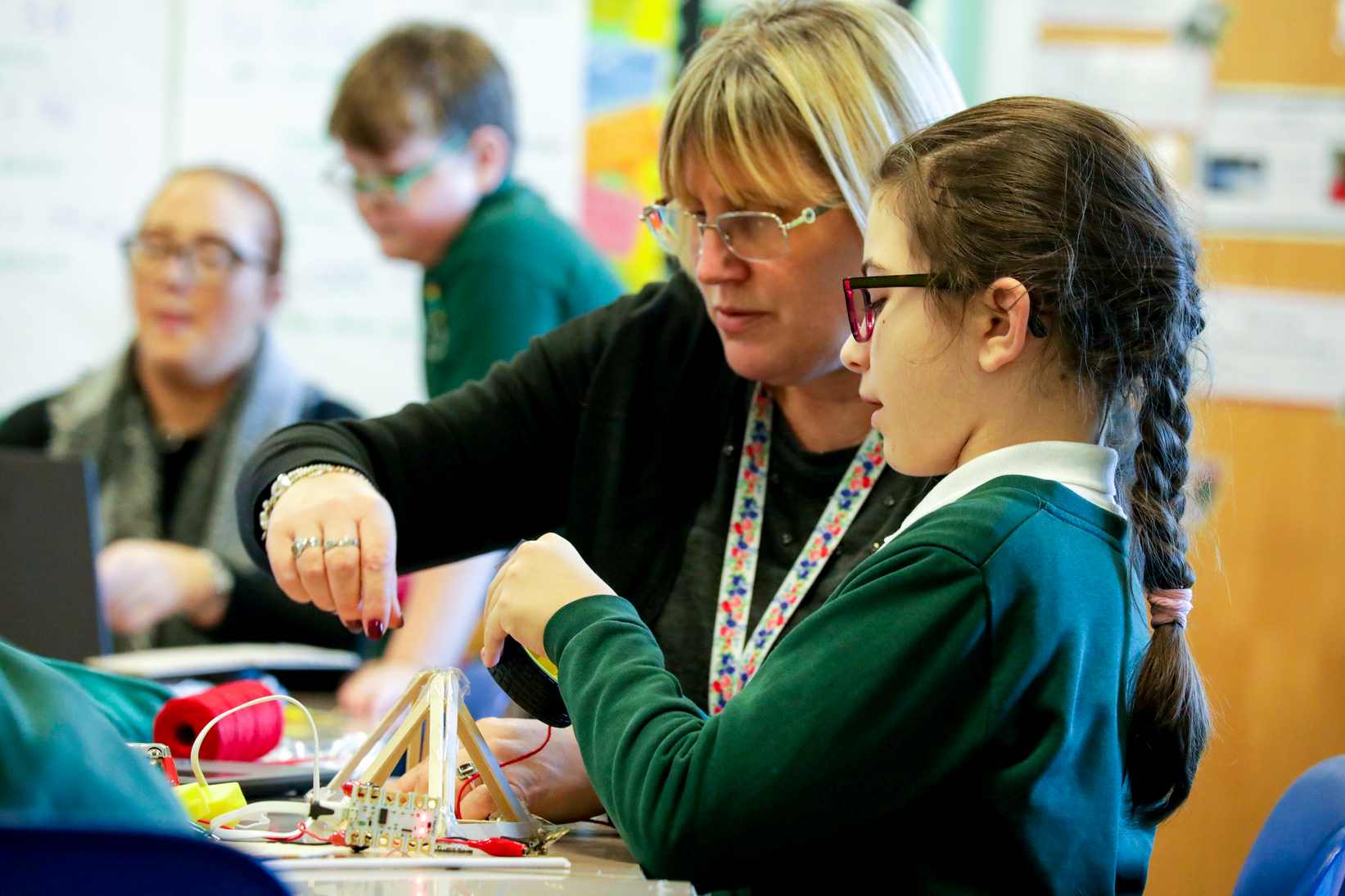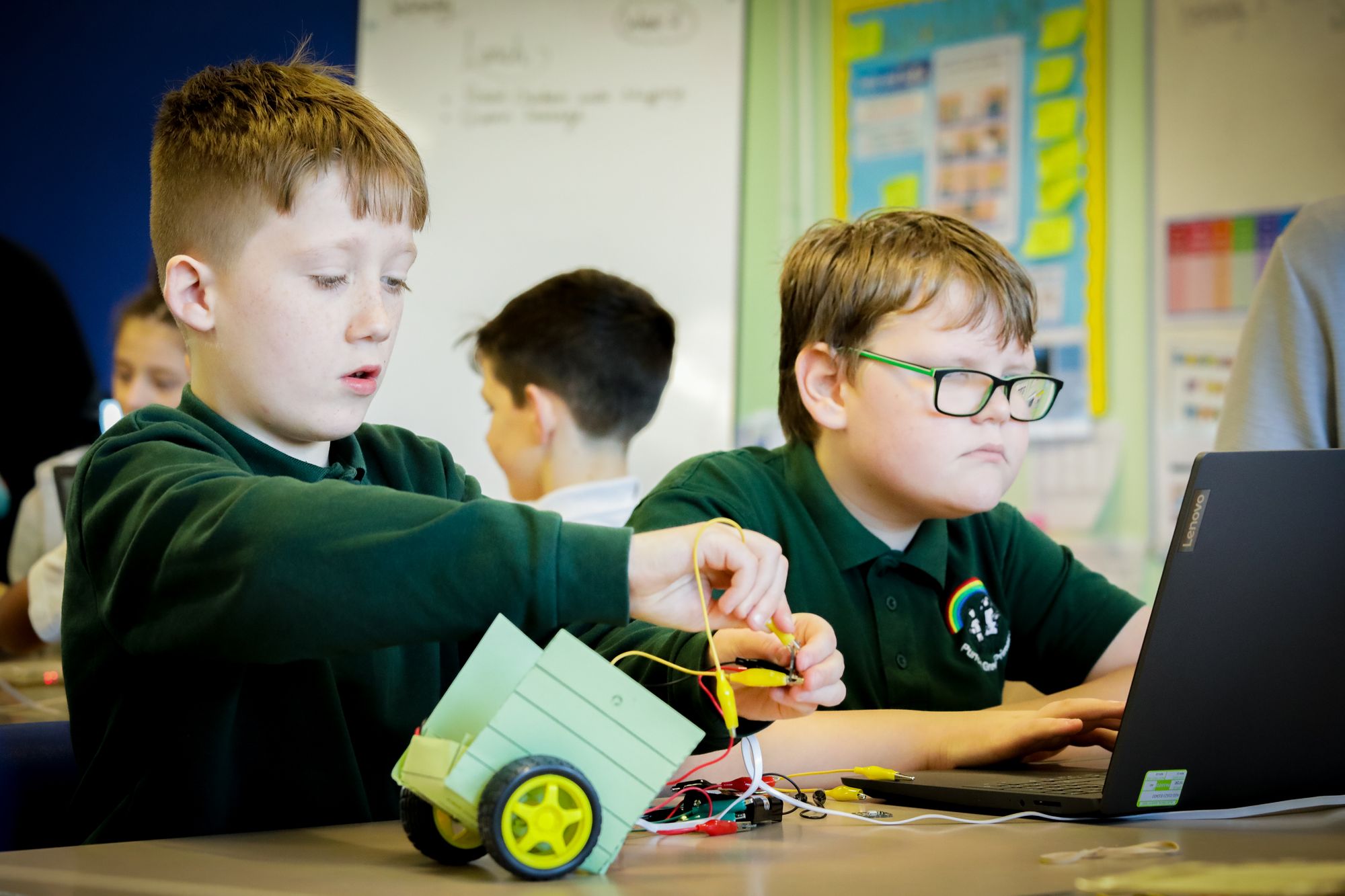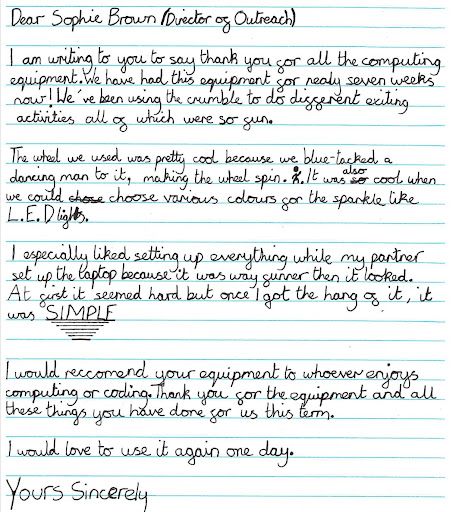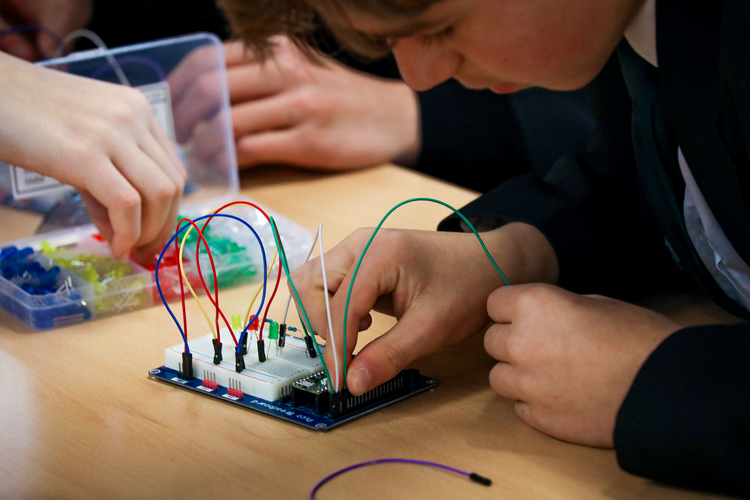Physical computing kits: the story so far
25 April 2022

It's now six months since the NCCE physical computing kits scheme was launched, so we thought it would be a good time to report on how the scheme is going.
A quick recap
If you haven’t come across the kits yet, they are available to borrow for free from the 34 NCCE Computing Hubs located at secondary schools across England. The kits are split into trays by type of device, and each tray is suitable for teachers to get started with physical computing at different key stages:
- Crumble trays – key stage 2
- Micro:bit trays – key stages 2 and 3
- Raspberry Pi Pico trays – key stage 4
- Raspberry Pi 3B+ trays – key stage 4
Our teacher guide to physical computing kits provides a detailed breakdown of all of the equipment and components included in the kits. It also includes information about free teaching resources and training that are available to accompany them.
The Crumble trays have been the most popular so far — so much so that some teachers have found that their local Computing Hub has all the sets already booked out. If this happens to you, simply contact another friendly Computing Hub from our list.

How are the kits being used?
We were excited to read the results from our recent teacher survey. Over 200 trays have been loaned out since September 2021, and over 90% of the teachers surveyed have used units from our Teach Computing Curriculum to teach using the physical computing kits. These stats suggest a powerful learning experience for students when our resources are combined with our physical computing equipment.
The activities took place in after-school clubs and in-school lessons. Sessions teachers ran included:
- Making traffic lights flash with Crumbles
- Changing the value of variables using the accelerometer on micro:bits
- Building line-following buggies using Raspberry Pi Pico

A link to the physical world
A common theme among teachers’ comments was around how much they enjoyed seeing their students’ reactions to controlling a physical object in the real world by the code they wrote on a computer. Teachers told us that children gained a more “real-life” understanding of the purpose, and uses, of programming. A number of teachers also commented that the equipment gave learners the opportunity to access a part of the curriculum that their department budget wouldn't stretch to.
Teacher Phil Macaree from Oaklands Catholic School, Hampshire used a set of Raspberry Pi Picos for the first time and found using them easier than he had expected:
“It’s not such a big progression from a micro:bit to a Pico — it could be a good stepping stone between using a micro:bit and a Raspberry Pi computer. It’s really manageable because of the easy-to-use Python editor Thonny and being able to plug it into a desktop.”
From a student’s perspective, some year 6 students from Castle Primary school in Tiverton wrote to teacher Sophie Brown from their local hub at Exeter Maths School to say thank you for the opportunity to borrow the kits. The letter below beautifully explains the benefits:

We were grateful for all your feedback and hope we can provide lots of similar opportunities with our kits over the next few years.
Let's get physical
If you are new to physical computing and would like some training before borrowing a tray, there are a range of in-person short courses offered by our School Hubs:
- Physical computing kit - KS2 Crumble - short course
- Physical computing kit - KS3 micro:bit - short course
- Physical computing kit - KS4 Raspberry Pi Pico - short course
We have lots of free online courses available that will give you a great introduction to physical computing at a pace that suits you:
- Teaching Physical Computing to 5- to 11-year-olds
- Teaching Physical Computing with Raspberry Pi and Python
- Robotics With Raspberry Pi: Build and Program Your First Robot Buggy
If you would like some support teaching physical computing from a local expert, STEM Learning are running a 90-minute, remotely-delivered CPD session on how STEM Ambassadors can add value to the secondary computing curriculum and extra-curricular offer:

Borrow a kit today
Visit our School Hubs homepage to find your local Hub, then contact them to find out what’s available to borrow. Most schools borrow a kit for about six weeks at a time. Get your hands on the latest technology for free!